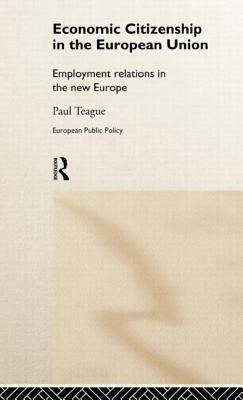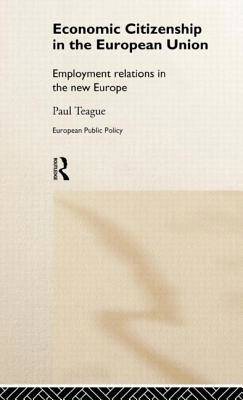
- Afhalen na 1 uur in een winkel met voorraad
- Gratis thuislevering in België vanaf € 30
- Ruim aanbod met 7 miljoen producten
- Afhalen na 1 uur in een winkel met voorraad
- Gratis thuislevering in België vanaf € 30
- Ruim aanbod met 7 miljoen producten
Zoeken
€ 244,45
+ 488 punten
Omschrijving
Paul Teague explores the macro-economic, productive and institutional pressures faced by Europe's social model and assesses a number of economic and political programmes aimed at resolving the crisis. It also considers the role of the European Union building a social dimension to the European economy. The findings suggest that the future of traditional institutions of Social Europe is under threat. However, they also stress that we are not on the threshold of the 'Americanisation' of European life. This study finds that the influential political forces that reject the dismantling of Europe's social model should not be preoccupied with defending inherited institutions. Instead this book argues that they should encourage the construction of new forms of social solidarity compatible with the complexities of modern economic life.
Specificaties
Betrokkenen
- Auteur(s):
- Uitgeverij:
Inhoud
- Aantal bladzijden:
- 244
- Taal:
- Engels
- Reeks:
Eigenschappen
- Productcode (EAN):
- 9780415170512
- Verschijningsdatum:
- 14/01/1999
- Uitvoering:
- Hardcover
- Formaat:
- Genaaid
- Afmetingen:
- 154 mm x 217 mm
- Gewicht:
- 444 g

Alleen bij Standaard Boekhandel
+ 488 punten op je klantenkaart van Standaard Boekhandel
Beoordelingen
We publiceren alleen reviews die voldoen aan de voorwaarden voor reviews. Bekijk onze voorwaarden voor reviews.











